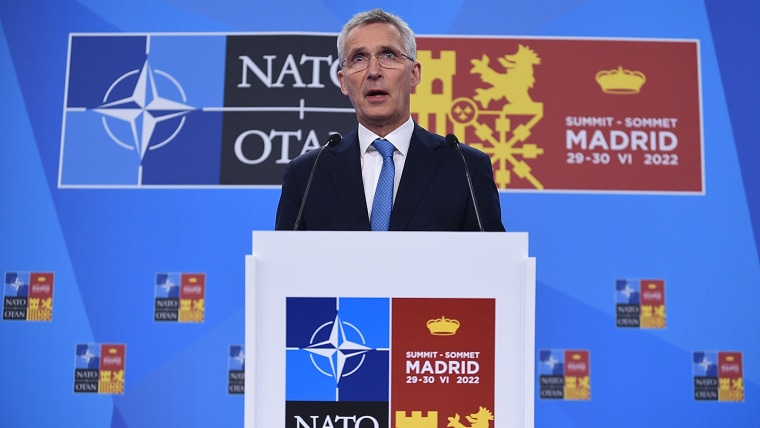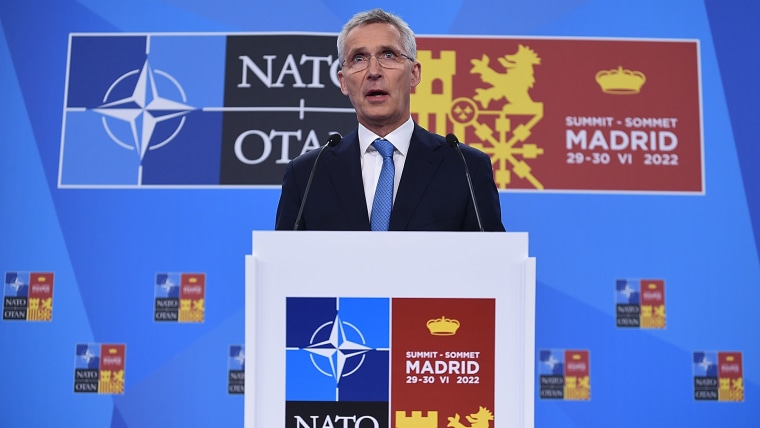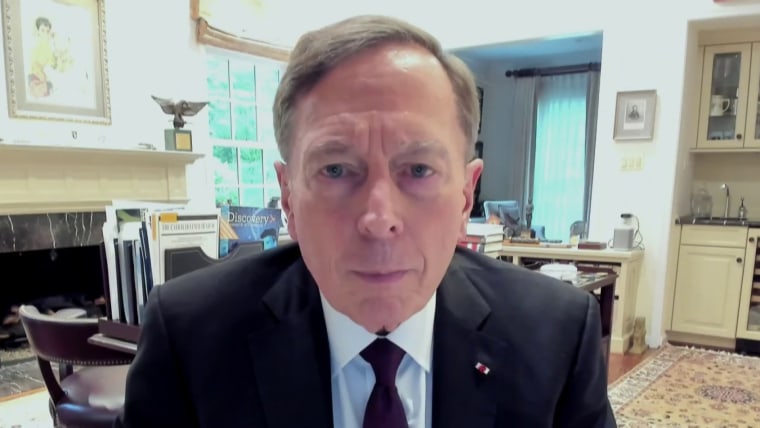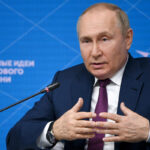Vladimir Putin believes the Russian military’s scaled-down attrition strategy in Ukraine will grind down Ukrainian forces and break the will of the U.S.-led alliance — but he is wrong, CIA Director William Burns said Wednesday at the Aspen Security Forum.
“Putin’s view of Americans is that we always suffer from attention deficit disorder, and we’ll get distracted by something else,” Burns said during a live-streamed interview with Andrea Mitchell of NBC News. “My own strong view is that Putin was wrong in his assumptions about breaking the alliance and breaking Ukrainian will before the war began, and I think he is just as wrong now.”
After a disastrous start to the war based on a series of flawed assumptions, Russia has settled into its traditional method of war in Ukraine’s eastern region, Burns said — directing massive artillery and air strikes against cities, without regard to civilian casualties.
Russia has had some success, he said, advancing six to 10 miles across a narrow strip of land in the Donbas region. But the gains have come at great cost. The U.S. estimates that as many as 15,000 Russian soldiers have been killed and three times as many wounded, he said. He said Ukrainian casualties are believed to be nearly as high.
“In one of my recent conversations with one of my Ukrainian counterparts, he pointed out that the dumb Russians were all dead,” Burns said. “And I think what he meant by that [is]…the Russians have adapted…Putin has shrunk his objectives.”
But he said Ukrainians should be able to continue resisting, “so long as we continue to support them with the weaponry and the munitions that they have used so effectively.”
Putin was wrong in thinking he could fracture the NATO alliance, Burns said — instead, NATO is welcoming Finland and Sweden and has strengthened its troop deployments closer to Russian borders.
“He thought he could establish his dominance over Ukraine very quickly,” Burns said. “It’s hard not to see this as a strategic failure at this point for Putin and Russia.”
Burns said the CIA is aware of no evidence that Putin is debilitated mentally or physically.
“There are lots of rumors about President Putin’s health and as far as we can tell, he’s entirely too healthy.”
Lessons for China
Burns offered a fairly detailed assessment of what the CIA believes China has learned from Russia’s Ukraine adventure.
He said he wouldn’t underestimate Chinese President Xi Jinping’s determination to assert control over Taiwan, a self-ruling island claimed by Beijing, and he said he believes Xi is “determined to ensure that his military has the capability to undertake such an action should he decide to move in that direction.”
He said Russia’s experience in Ukraine probably will not influence the timing of China’s ambitions regarding Taiwan, but may change how it decides to approach them.
He added, “I think the Chinese leadership is trying to study the lessons of Russia’s invasion of Ukraine and what it tells them … If there’s one lesson I think they may be drawing from Putin’s experience in Ukraine it’s you don’t achieve quick, decisive victories with underwhelming force.”
The idea that 190,000 Russian troops were going to effectively occupy and control 47 million defiant Ukrainians never made any sense, Burns said.
“So I suspect the lesson that the Chinese leadership and military are drawing is that you’ve got to amass overwhelming force. If you’re going to contemplate that in the future, you’ve got to control the information space. You’ve got to do everything you can to shore up your economy against the potential for sanctions, even though the Chinese economy is far stronger and more entangled with economies around the world than Russia’s ever was.
“And you’ve got to do everything you can to try to drive wedges across the Indo-Pacific between the United States and its allies.”
On Iran, Burns said the U.S. does not believe Iran has resumed any effort to build a nuclear weapon, but he said Iran’s work on advance centrifuges means its breakout time — the time it would need to build a bomb — has become very short.
“The trend lines are quite troubling,” he said.






